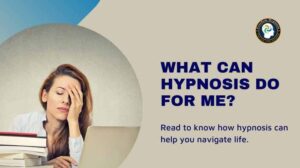
Welcome to the whimsical world of phobia medication, where we tackle those pesky fears that can turn even the bravest soul into a quivering jellybean! Imagine facing your greatest phobia armed with little more than a pill and a sprinkle of courage—sounds like a superhero origin story, doesn’t it?
We’ll explore the various medications designed to help ease those heart-pounding moments—whether it’s the fear of heights making you feel like a bird stuck in a cage or the terror of spiders that sends you sprinting faster than a gazelle. From anxiety reducers to antidepressants, we’ll delve into how these meds work, the relationship between phobias and physical health, and even some lifestyle changes that pack a punch in treatment plans.
Phobia Medication Overview

Phobias can be as perplexing as trying to find a needle in a haystack, especially when your greatest fear is hay itself. Fortunately, there are several medications designed to help alleviate the dread that accompanies these irrational fears. Understanding these medications’ types and mechanisms can help individuals take the leap toward overcoming their phobias, one small step at a time.There are primarily two classes of medications commonly used to treat phobias: anxiolytics and antidepressants.
Each plays a unique role in managing anxiety and phobia symptoms, ensuring that individuals can confront their fears without feeling like they are gearing up for a horror movie marathon.
Types of Medications Used to Treat Phobias
When it comes to tackling phobias, medications can be quite the sidekick. Here’s a quick rundown of the main types:
- Anxiolytics: These are the superheroes of immediate anxiety relief. Benzodiazepines, a subset of anxiolytics, work swiftly to calm the nerves. They increase the effect of the neurotransmitter GABA, leading to a soothing sensation that can almost feel like a warm hug.
- Antidepressants: Selective serotonin reuptake inhibitors (SSRIs) and serotonin-norepinephrine reuptake inhibitors (SNRIs) fall into this category. They work over time by balancing neurotransmitters in the brain, reducing anxiety and depressive symptoms, which can be crucial for those battling phobias.
- Beta-blockers: While typically used for heart issues, these can be useful for controlling physical symptoms of anxiety, such as rapid heartbeat and shaking, especially in performance situations, like public speaking or karaoke night.
Mechanism of Action for Anxiety-Reducing Medications
The magic of medication lies in how they interact with our brain’s chemistry. Here’s a peek behind the curtain at how they work:
- Anxiolytics: These medications enhance GABA’s inhibitory effects in the brain, acting like the ultimate chill pill. When GABA levels rise, neuronal excitability decreases, leading to a calming effect that helps individuals tackle their fears without feeling as though they’re on a rollercoaster without a safety harness.
- Antidepressants: SSRIs and SNRIs boost serotonin and norepinephrine levels, essentially giving neurons the happy juice they need to communicate more effectively. This results in improved mood and reduced anxiety over time, transforming fears from towering giants into manageable bumps in the road.
Role of Antidepressants in Managing Phobia Symptoms
Antidepressants play a significant role in long-term phobia management, often acting as a first line of defense for those who experience chronic anxiety alongside their fears. These medications can provide a solid foundation for therapy and other coping techniques:
- Prolonged Relief: Unlike anxiolytics, which provide quick but short-lived relief, antidepressants work over weeks to rewire how the brain processes fear, leading to longer-lasting comfort when faced with phobic triggers.
- Reducing Co-occurring Symptoms: Many individuals with phobias also experience depression or generalized anxiety. Antidepressants help address these additional layers, allowing for a more comprehensive treatment approach.
- Facilitating Therapeutic Approaches: With reduced anxiety levels, patients can engage more effectively in cognitive-behavioral therapy (CBT) or exposure therapy, making it much easier to confront and gradually dispel their fears.
“Medication isn’t a magic wand, but it can be the gentle nudge we need to start facing our fears head-on.”
Health and Phobias

Phobias are not just irrational fears that make you avoid stepping foot in a spider’s territory; they can also wreak havoc on your overall health. Imagine being so afraid of heights that you can’t enjoy a scenic view or so terrified of public speaking that you break into a sweat at just the thought of a meeting. This isn’t just about feeling nervous; it can lead to a variety of health problems that extend beyond the initial fear.The relationship between phobias and physical health issues is as complex as deciphering a cat’s meow.
Phobias can trigger stress responses in the body, which may escalate to chronic conditions such as high blood pressure, weakened immune response, and gastrointestinal issues. The stress of living with unaddressed phobias can lead to a cycle of avoidance and anxiety that adversely affects both mental and physical well-being.
Common Phobias and Their Health Impact
Understanding the most prevalent phobias is essential, especially since they can significantly impede daily life and overall health. Here are some common phobias and their associated health impacts:
- Agoraphobia: The fear of open or crowded spaces can lead to isolation, preventing exercise and social interaction, which are crucial for good health.
- Social Anxiety Disorder: The fear of social situations can lead to missed opportunities, affecting mental health and possibly contributing to depression.
- Claustrophobia: The fear of confined spaces can trigger panic attacks, increasing heart rate and causing physical distress.
- Arachnophobia: While it may seem harmless, the intense fear of spiders can result in avoidance behaviors that limit outdoor activities.
- Acrophobia: Fear of heights can prevent individuals from engaging in many recreational activities, leading to a sedentary lifestyle.
The impact of these phobias can be extensive, often leading to a vicious cycle of avoidance and health deterioration.
Therapeutic Approaches Combining Medication and Lifestyle Changes
Addressing phobias effectively often requires a holistic approach that couples medication with lifestyle changes. This combination fosters a healthier way of managing fear while improving physical and mental health. Here are some therapeutic strategies:
- Cognitive Behavioral Therapy (CBT): This involves changing negative thought patterns related to phobias and can drastically improve coping mechanisms.
- Exposure Therapy: Gradual exposure to the feared object or situation helps desensitize the individual, diminishing the phobia over time.
- Medication: Antidepressants or anti-anxiety medications can help alleviate symptoms, making it easier to engage in therapy and daily activities.
- Mindfulness and Relaxation Techniques: Practices like yoga and meditation can reduce stress responses, enhancing overall well-being.
- Exercise: Regular physical activity is key for physical health and can also serve as a natural anxiety reliever.
Combining these approaches not only addresses the phobia but also promotes a healthier lifestyle overall. With the right support and strategies, living with phobias can be managed, allowing individuals to lead fuller, healthier lives.
Integrative Approaches to Phobia Treatment
Integrative approaches to phobia treatment combine traditional methods with lifestyle changes and alternative therapies, offering a holistic strategy that targets the mind, body, and spirit. This multifaceted approach not only addresses the symptoms of phobias but also empowers individuals to take control of their lives and well-being, ideally with a sprinkle of humor (because who said overcoming fear can’t involve a chuckle or two?).
Healthy Nutrition in Phobia Treatment Plans
Nutrition plays a key role in mental health, and incorporating healthy eating habits can aid in managing phobias. Certain nutrients can enhance mood and reduce anxiety, contributing to a calmer state of mind. When we fuel our bodies with the right foods, we’re less likely to panic at the sight of a spider or a crowded room. Below are some dietary staples that can help amplify your mental fortitude:
- Omega-3 Fatty Acids: Found in fish like salmon and walnuts, these little gems are known for promoting brain health and reducing anxiety. Who knew that a tuna sandwich could be your superhero?
- Dark Chocolate: Yes, you read that right! Rich in antioxidants, dark chocolate can lower stress hormones and make you feel a little less like you’re facing your worst fear (and who doesn’t love a delicious excuse?).
- Leafy Greens: Spinach and kale are packed with folate, which can help regulate mood. Plus, they can make you feel like a health-conscious ninja ready to tackle anything.
- Complex Carbohydrates: Whole grains like oats and quinoa release serotonin, the “feel-good” hormone. So, the next time you’re feeling anxious, consider a hearty bowl of oatmeal instead of a panic attack!
Comparison of Physical Therapies in Treating Phobias
Physical therapies offer a variety of options for tackling phobias, and understanding their effectiveness can help individuals choose the best path for themselves. Here is a comparison of some popular physical therapies, each with its unique benefits and quirks:
| Therapy | Effectiveness | Notes |
|---|---|---|
| Yoga | Highly effective in reducing anxiety and stress levels. | Combines physical postures with breathing techniques—perfect for flexibility in both body and mind! |
| Massage Therapy | Can significantly lower stress and improve relaxation. | Who wouldn’t feel better after a good rubdown? Bonus: It’s hard to be scared when you’re in a zen-like state! |
| Aerobic Exercise | Proven to release endorphins, improving mood and reducing fear-related symptoms. | Dancing like nobody’s watching can also be an effective way to kick phobias to the curb! |
| Acupuncture | Can help with anxiety and phobias by balancing energy. | Just remember: a needle doesn’t bite, but it might help you conquer your fear of them! |
Alternative Therapies for Phobia Management
Alternative therapies can offer unique tools for managing phobias, with self-hypnosis being a standout option. This technique allows individuals to tap into their subconscious mind, reprogramming responses to fear triggers and reducing anxiety levels. Here are some insights into how self-hypnosis can work wonders: Self-hypnosis can help individuals visualize their fears in a controlled environment, allowing for desensitization without the actual threat present.
Picture this: instead of being paralyzed by fear at the thought of public speaking, a person practices self-hypnosis and imagines themselves confidently addressing an audience of puppies—all while sipping tea, of course! Additionally, practicing self-hypnosis regularly can result in long-term benefits, making it easier to face fears in waking life. Imagine walking into that spider-infested basement (or wherever your personal horror lives) with a shrug and a smile, all thanks to your new-found mental toolkit.
“Your fears are like a bad haircut: they can be managed with the right tools and a little bit of bravery.”
Last Recap
So, there you have it! Phobia medication is not just about popping pills; it’s about weaving together a tapestry of treatments that include healthy habits and perhaps a dash of self-hypnosis magic. Remember, conquering phobias is like taming a dragon—it takes the right tools, a bit of courage, and possibly a great deal of ice cream. Go forth and face those fears!
Essential Questionnaire
What are the most common medications for phobias?
Common medications include selective serotonin reuptake inhibitors (SSRIs), benzodiazepines, and beta-blockers, each targeting different aspects of anxiety.
How long does it take for phobia medication to work?
Generally, SSRIs may take several weeks to show full effects, while benzodiazepines can provide faster relief but are usually for short-term use.
Are there side effects to phobia medications?
Yes, side effects can include nausea, dizziness, and drowsiness, but these vary by medication, so consulting a doctor is always a good idea!
Can phobia medication be combined with therapy?
Absolutely! Combining medication with therapy often yields the best results, addressing both symptoms and root causes of phobias.
Is it safe to stop taking phobia medication suddenly?
Not usually! Stopping suddenly can cause withdrawal symptoms or a return of anxiety, so it’s best to consult with a healthcare provider for a safe plan.





